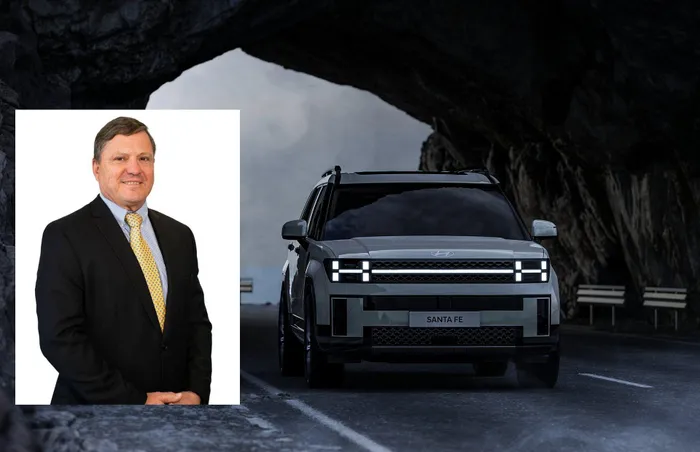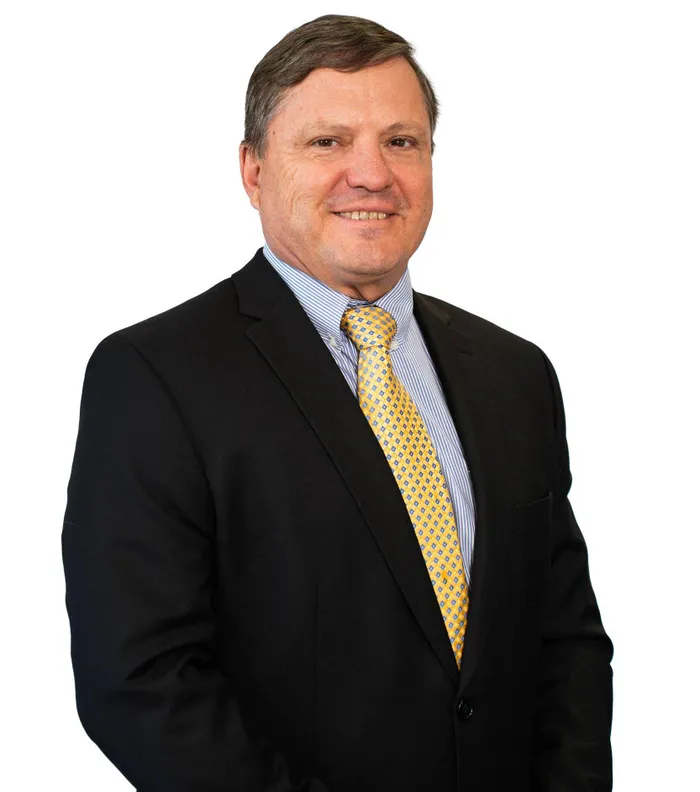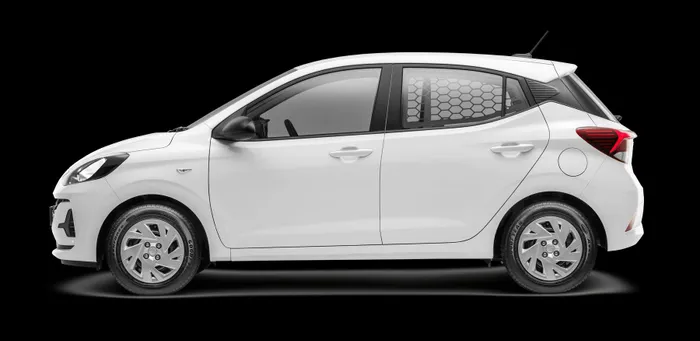INTERVIEW: Hyundai SA CEO Stanley Anderson on future products, Chinese competition and brand vision

Although models such as the new Santa Fe move the brand upmarket, Hyundai SA is still very much committed to accessibly products.
Image: Supplied
Stanley Anderson has played a pivotal role in growing the Hyundai brand’s footprint in South Africa over the past two decades.
Anderson was appointed as Chief Executive Officer (CEO) of Hyundai Automotive South Africa in May, but his journey with the brand started in 2004 when he joined the company as Marketing Director. In 2015 he became the company’s Director of Sales and Operations.
Hyundai has cemented its position as South Africa’s fourth largest vehicle brand with year-on-year growth of 29% between January and July 2025, outpacing the overall market’s 20% growth.
Anderson outlined the brand’s future growth strategy in a recent interview with IOL.

Hyundai Automotive South Africa CEO Stanley Anderson.
Image: Supplied
Given the rapid growth of Chinese and Indian imports, will Hyundai South Africa be able to retain its competitive edge in the market?
“Competition is healthy, it keeps us sharp. Yes, Chinese and Indian brands are very aggressive in the entry-level space, but Hyundai’s strength has always been balance: affordability, quality, and trust,” Anderson told IOL.
Hyundai SA imports many of its popular products, including the Grand i10, Exter, and Venue, from India. But will these lower-priced models remain a priority for the brand, or could there be a move upmarket?
“Our strategy isn’t to chase the lowest price at all costs; it’s to give South Africans real value. That means vehicles that are competitively priced but also backed by a strong dealer network, reliable parts availability, and service excellence. That’s what builds long-term loyalty.
“On imports from India, yes, affordable models will remain part of our offering because they meet a real need in the market. But equally, we are moving upmarket in SUVs, commercial, and NEV spaces. South Africans don’t just want “cheap cars”, they want dependable cars that hold their value. Hyundai sits exactly in that sweet spot: accessible, aspirational, and trusted,” Anderson added.
On the light commercial vehicle (LCV) side, Anderson said the company has been targeting the corporate market with products such as the Grand i10 Cargo, which has been popular among those looking to replace their old NP200 bakkies, particularly within the home security industry. He explained that customers had been impressed by its vastly superior fuel economy.

Hyundai Grand i10 Cargo.
Image: Supplied
"A market that we're focusing heavily on is the corporate market, because that's where I believe we'll grow sales, because those customers still want a trusted brand. Parts availability is important to them, the running cost, after-sales back-up in general, and resale value."
"We can give a customer a very good idea, if he buys a new Hyundai today, what that car will be worth in three or four years."
But will we ever see a double cab bakkie from Hyundai?
Unfortunately, there is no indication of such a product as yet, Stanley said.
What products are on the Horizon?
Anderson told IOL that the new-generation Venue compact SUV, not yet revealed internationally, is due to launch in South Africa around April 2026, and that it would be a “big focus” for the brand locally.
Anderson admitted that this segment was a challenge, given the proliferation of low-priced contenders from India and China, but he said the importer would launch the new model as aggressively as possible following the inevitable price negotiations with the Korean parent company.
The CEO also said the company plans to introduce the new Palisade premium SUV in early 2026, while a facelifted Creta could also surface around that time.
Looking further ahead, a new-generation Tucson is expected in the next 18 to 24 months, and it will likely follow the Santa Fe in dropping diesel power, while adding a hybrid option. Although the local importer would like to retain diesel options, they are at the mercy of their international parent company, which is gradually phasing out diesel engines.
Speaking of new energy vehicles, while Hyundai’s SA’s hybrid portfolio is expected to grow in line with new-generation product offerings, fully electric vehicles are still not on the cards for the local division.
Pricing pressures hinder the introduction of Hyundai’s Ioniq model range that’s offered overseas. However, the local market is simply not ready for the mass adoption of EVs, Anderson said.
"I don't see any incentives for the consumer coming to the forefront any time soon. And if you look at the EV numbers, they've only sold 450 full EVs this year so far.
"I just don't think it's a viable proposition.
"I really don't see a future for full EVs, in the medium term at least. And that goes for the whole of Africa and even big markets like India. A lot of large markets still want ICE vehicles."
"A lot of brands got onto this EV bandwagon and went aggressive, and it's backfiring."
Leadership vision
On Hyundai’s overall vision for the South African market, Anderson said the brand aimed to be the country’s most trusted mobility partner.
“That means not just selling cars, but helping people live better, move smarter, and dream bigger.
We want to democratise mobility, whether it’s through affordable entry models, robust SUVs, or future-ready NEVs.
“It’s also about contribution. We see ourselves as part of the national project, building skills, creating jobs, and driving transformation in the industry. The future of mobility in South Africa is not just about technology, but about inclusion. And Hyundai will be at the forefront of both.”
To that end, Hyundai South Africa recently launched its “Drive Your Dreams” Youth Mentorship Programme, which will give young high school students direct access to one-on-one mentorships at Hyundai South Africa.
Through this initiative, learners will gain practical exposure, guidance and a first look at potential career opportunities. Anderson will also be directly involved in this programme.
“I’ve always believed that leadership is less about the title and more about service. If I create the right environment, where people are challenged, supported, and inspired, they’ll deliver results that even surprise themselves.
“That’s why I spend as much time with learners, technicians, and sales trainees as I do with executives. Because leadership, for me, is about lifting people at every level,” Anderson concluded.
Get your news on the go. Download the latest IOL App for Android and IOS now
IOL Motoring
Related Topics: